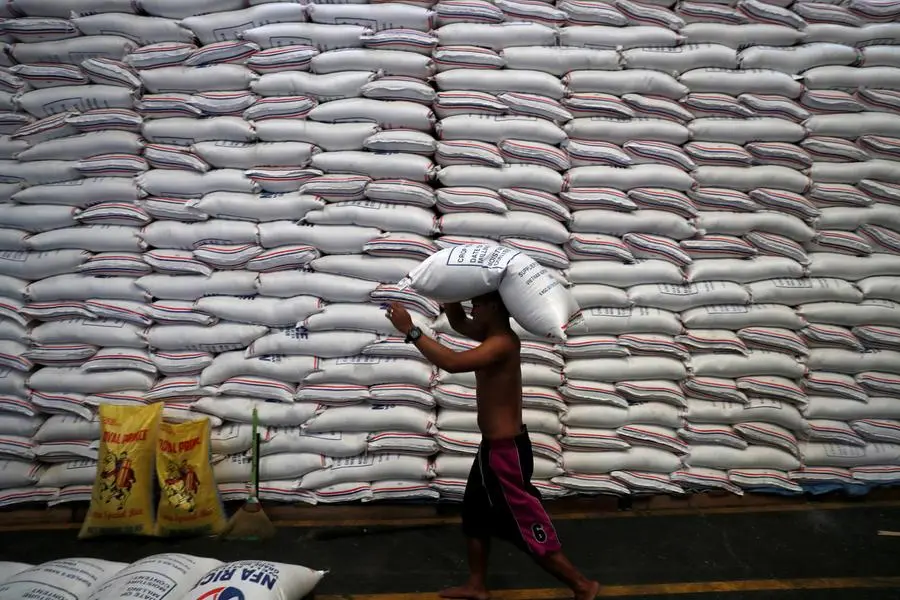PHOTO
The Department of Agriculture is not keen on imposing a suggested retail price for rice, Secretary Francisco Tiu-Laurel said on Thursday, clarifying that "earlier proposals" were "just an idea" based on what is allowed under the country's law on prices of agricultural products.
'We're not doing it. Prices of rice and other agricultural products in international markets like Thailand and other countries are volatile and fluctuating due to El Nino,' Tiu-Laurel said in a news release.
'Hence, we're not suggesting to control prices at the moment,' the DA chief added.
DA spokesperson Arnel De Mesa said earlier this week that the department was mulling the imposition of an SRP to temper the soaring prices of the household staple, which climbed to 19.6% in December - the highest since March 2009.
The DA chief said this proposal was 'based on available remedies according to the Republic Act 7581 or the Price Act' and stressed that imposing a price ceiling for particular goods could be 'counterproductive.'
'In most cases, farmers bear the brunt of a price limit because traders will only lower their purchase prices to keep their margins. Consumers also don't benefit in such a situation. It could also fuel price speculation and supply hoarding that evolves into another problem altogether,' Tiu-Laurel said.
The DA is also 'working double time' to ensure ample supply of agricultural products, particularly rice, ahead of a looming dry spell from the El Niño phenomenon, which is set to peak from February to March.
'We're building up a buffer, largely through importation, to ensure we have ample supply of rice as we await the next harvest starting March. This should help keep prices stable without government intervention,' Tiu-Laurel added.
In December, the DA assured that the supply of rice would be able to last until the next harvest season in March or April 2024 and that the expected arrival of imported rice and local production of the grain would meet the population's demands.
President Ferdinand Marcos Jr., who previously held the DA chief post before appointing Tiu-Laurel in November, imposed a price cap on rice in September 2023 - a move that the president said brought its price down but has been criticized by farmers' groups for causing profit losses.
Copyright © 2022 PhilSTAR Daily, Inc Provided by SyndiGate Media Inc. (Syndigate.info).





















